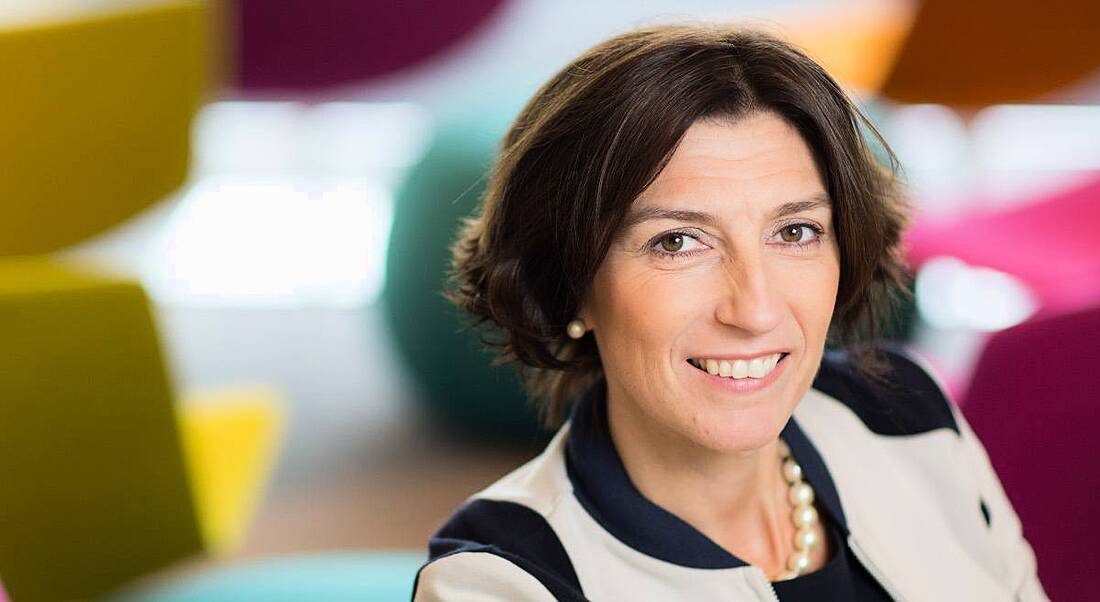Nicola Mortimer, head of business marketing, products and operations at Three Ireland, discusses how the evolution of the workplace will be accelerated by the next generation of graduates.
September next year, we will be throwing open our doors to the next generation of workers with the first intake of our graduate programme.
It is a two-year programme that will see 15 graduates join our team in head office and go on three eight-month rotations across various departments within the organisation, including IT and networks, finance, marketing, business, human resources and customer relations.
We are really excited about the programme, and I believe it will be mutually beneficial for both us and the graduates.
The more diversity we can introduce into the organisation, in terms of background, age and culture, the better equipped we are to make the best decisions for our customers.
The graduate programmes of today are a far cry from the graduate programme I did when I left university. I was an engineering graduate and the programme I undertook was very engineering-specific. That approach is no longer appropriate for the graduates of today or the workforce of tomorrow.
Their careers may well go through a number of different phases and iterations, and, with the developments in artificial intelligence, who knows what jobs will still be relevant in the future?
Therefore, a key element of our programme will be equipping our graduates with transferable skills and developing their experience in different areas. It will focus more on progressing their mindset rather than subject-matter expertise.
However, it’s not just our graduate programme that needs to be tailored for the workplace of the future. We need to be looking much wider than that, to how we work and where we work.
Graduates are used to a much different working environment. University libraries are no longer just quiet rooms for independent working; they are much more collaborative and less formal.
These graduates are also digital natives. They have grown up in an era where writing an assignment on their laptop from a coffee shop is the norm. They do not recognise a world before the mobile phone.
The technology developments of the last number of years have led to huge changes for how we work. The entrance of the next generation to the workplace, and the expectations that they have, will accelerate these changes even further.
In the workplace of the future, mobile working, flexibility and collaboration will be ubiquitous. Mobility has been the buzzword in our industry for a number of years now but it will soon become the new norm with the next wave of workers.
Companies need to prepare for this and put strategies in place to maximise the benefits. Mobile working enables organisations to become more productive. Flexible working makes for a happier workforce.
In fact, research we carried out last year found that 91pc of those surveyed found that mobile working has made their life easier. Strong mobile infrastructure provides the foundation for true mobile working, and employees’ reliance on access to mobile data is growing year on year. In the same survey, 80pc of business professionals defined their reliance on mobile data as ‘high’ or ‘very high’.
At Three, we are seeing this demand reflected in our business customers’ data usage, which grew 39pc last year. The SME sector is driving this growth, with a 50pc increase in demand in the same period.
We anticipate that this growth will continue to grow at pace as more and more workers look to mobile working and access to mobile data as the norm.
With this evolution of the workplace away from formal working hours and increased mobile working, security and data protection will continue to be a growing concern. We are all aware of the sensitive data that is held in our smartphone. How many are lost in taxis or left behind at restaurants?
A report by EY on ‘bring your own device’ (BYOD) suggests that approximately 22pc of the total number of mobile devices produced will be lost or stolen during their lifetime, and more than 50pc of these will never be recovered. The potential for a breach is very apparent and, as more and more employees look to their smartphone as a vital tool for doing their job, this risk will grow and employers need to prepare for that with mobile device management at a minimum.
The future workplace is not that far away. As organisations, we need to get our houses in order – our next generation is coming!
Nicola Mortimer is head of business marketing, products and operations at Three Ireland




